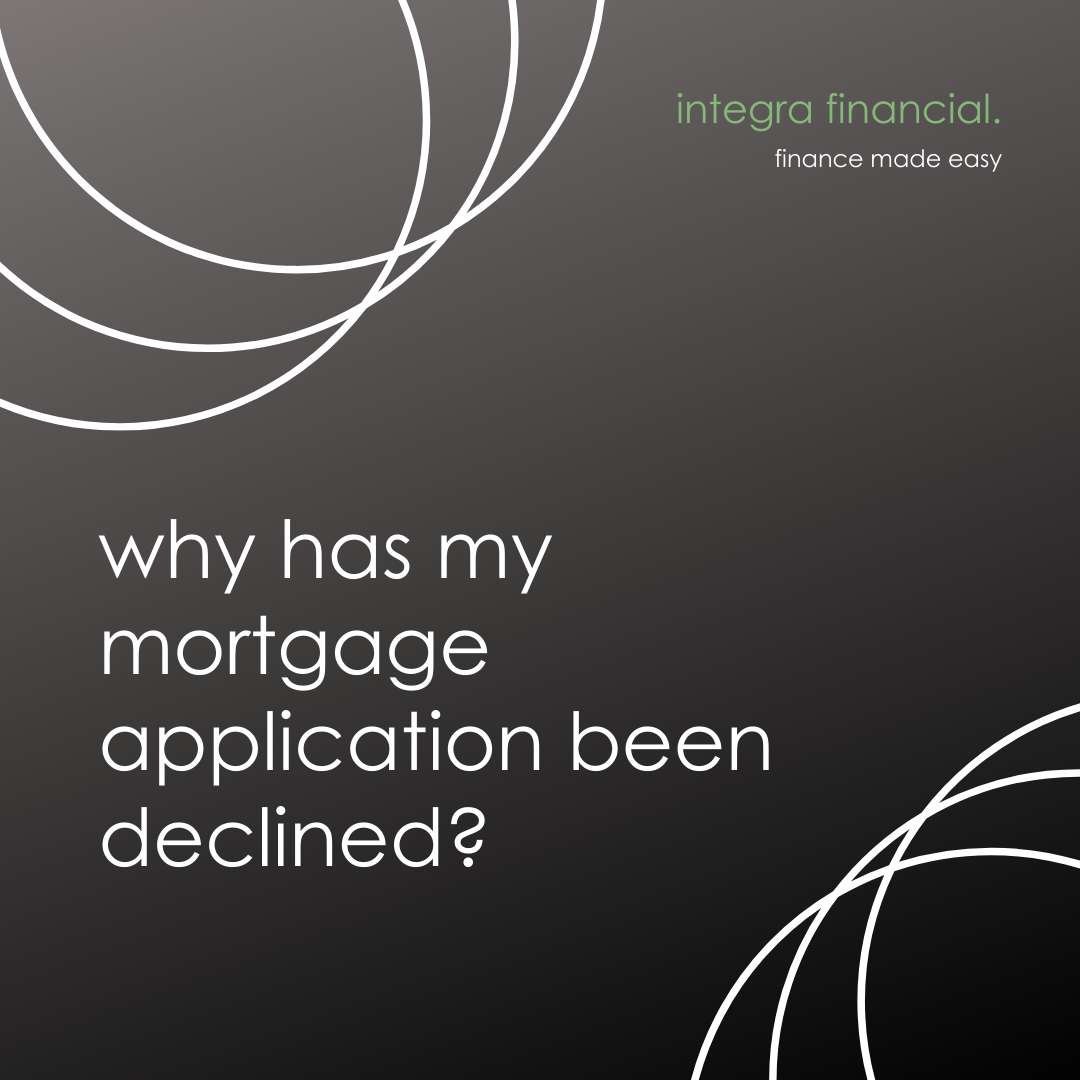


Integra News Why has my mortgage application been declined?

No one likes being rejected – especially when applying for a mortgage. There is a lot of work, time, and emotion that goes into it, right?
So, if your application has been declined, how can you avoid this ever happening again? The answer is: figure out why it happened in the first place.
Here are 5 common reasons for mortgage rejections:
1. Poor credit history.
If a mortgage lender is going to lend you thousands of pounds, they’ll want to be sure you can/will pay them back. They will be looking at how many different accounts you have, whether you have any missed or late payments or any adverse credit history. They may also pay attention to your credit limits on each of the facilities you have.
Another thing to note is that the ‘lack of’ credit can be deemed as a poor credit history. The credit check is a lenders first insight to how secure you are as an applicant. If you don’t have any credit, the lender has nothing to hang their hat on.
You can check your credit file with a number of credit reference agencies such as; Experian, Equifax and Transunion are to name but a few.
2. Affordability
The lender may have declined because they feel you won’t be able to afford payments.
It's important that the information keyed into the agreement in principle 100% match what shows on your income evidence. This is a big cause of reduced lending. It’s also important to understand what income sources the lender will use and what percentage of that income they may be willing to use. They will look at the history of your income to ensure the income is sustainable moving forwards.
3. Low deposit.
There are deals available for people with a 5% or 10% deposit, but these are few and far between. The higher the LTV (loan-to-value) for your mortgage, the riskier the deal is for your lender.
Mortgage lenders assess everything based on risk. So if you are putting down a small deposit i.e. 5%, they may reduce their typical income multiple to account for the risk of holding less security.
4. You are self-employed or a contract worker
In the eyes of a mortgage lender, the self-employed are seen to be a higher risk applicant than employed. After all, you are the boss of your own business, so they want to make sure the lending proposition that you offer makes for a safe bet.
They will want to check your business accounts, tax computations and tax overviews for anything up to 3 years. Once again, they are looking for consistency of income, ensuring there are no peaks and troughs. They will also ask more details about any government grants, bounce-back loans etc so they can determine whether or not the business is secure.
5. You've lived in the UK for less than 3 years.
The mortgage lenders will review up to 6 years of your credit history, so if you have lived in the UK for a short period of time, then there is going to be a small history of credit for them to review to measure if you are a low or high risk.
It’s important to make sure you are registered at your residential address. This is pretty much like a ‘tracker’ so the banks etc can monitor where you are and where you have applied for credit. It can also protect you from others who may have lived at your address who haven’t been so great with credit. We see this a lot with student accommodation (sorry students!).
What do I do next?
Before committing to a mortgage lender, speak to the people in the know. They ask a lot of questions but it’s all for good reason. In fact it will protect you, your credit report and a wee bit of embarrassment if things aren’t going to way you want them to!
How can Integra Financial help me?
If you have any questions about this blog please feel free to contact us via:
Email: enquiries@integraf.co.uk
Or our telephone: 0117 251 0083
Thank you for reading this blog, we hope it was useful to you. If you’d like to keep updated on Integra Financial, why not follow our Instagram and Facebook? Just search for @integrafltd
See you there!